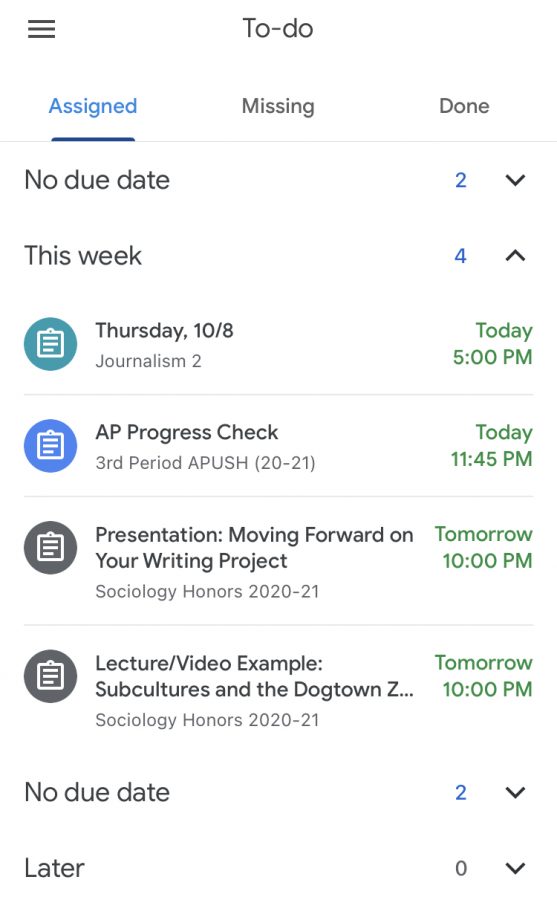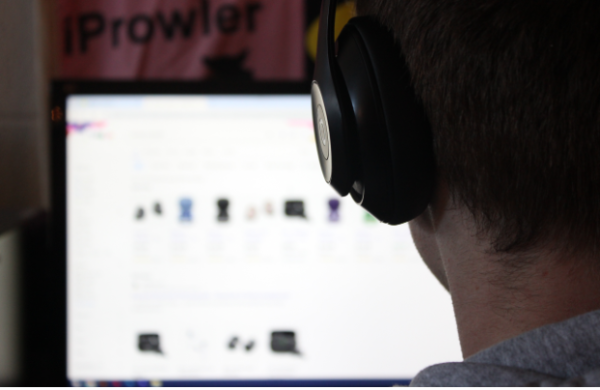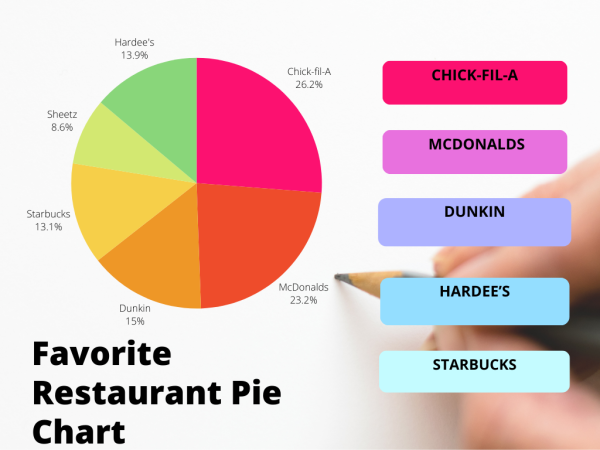Online Learning Poses Unique Challenges
October 8, 2020
Almost a month into school, and I cannot confidently say I have learned anything. Sure, I have performed well on all my assessments, I am not failing any classes, nor do I seem to be in any imminent danger of doing so. Nonetheless, am I actually learning? I cannot be sure.
When first presented with the reality of asynchronous online school, I was happy. I can sleep in late, go to bed late, and generally be pretty free throughout the day. Assignments, I correctly assumed, would be easier to keep track of using Google Classroom’s “To-do” page, and my comfort in the online realm would make this transition smooth. Now, a month into school, I can at least say that I was right. Typing this article at midnight with no plans to get up anytime before noon tomorrow is a perfect example of how most of my school days end alone, in my bed, in my house, completely isolated from the outside world. This is why I cannot confidently say I am learning.
Being isolated from peers forces students into a position where their only feedback is a score out of 100 and maybe a private comment from a teacher. This creates a difficult environment to truly gauge proficiency and may motivate many students to simply do the work without making the extra effort to comprehend most of what they are seeing. Many students find it hard to place any importance on their assignments and, without the personal engagement offered by in-person classes, they may never get to that point.
Some students, like Junior Aine Macdermott, are not finding the switch so difficult, but are still experiencing some problems.
“I think I am actually learning and remembering some, but only maybe 70 percent of what I think I would’ve if we actually had school,” said Macdermott.
This assessment seems to be common among students. Many feel a difference in how much information they are actually absorbing, but are still learning to some extent.
It is an issue that students are experiencing a deficit in learning, but not one where any blame can be placed. Teachers have been doing their absolute best to accommodate this radical change in learning, and many have been successful in forming personal relationships with students by means of email or live one-on-one video calls. Dr. Sandra Hayslette has some insight into struggles she has experienced while teaching online.
“The process of cutting stuff out, preparing new visual aids and graphic organizers for the new formats, filming it, and refilming it took 7.5 hours total. That kind of work-time expansion takes a toll on our sanity,” said Hayslette.
These words show the dedication that teachers have to making this experience as good for students as they can. Teachers are trying their best and should not be held at fault for failures in online schooling.
Students also cannot be blamed for this. The transition to online puts a heavy burden of responsibility on many, and organization is a difficult problem in the online setting. Many students had previously owned a computer and are thus experiencing a technological culture shock. Others simply find it hard to self-motivate without the constructive pressure from peers and teachers that only an in-person environment can provide. Dr. Hayslette has some suggestions for how students can better their online learning experience.
“Give yourself a routine. It will not look like a routine you’ve had before, but it’s useful to have one. Go outside, and do something that pushes you to the edge of your physical comfort zone for 30 minutes every day. While you are working at school, turn off your social media and, do not touch your video games. Make a point to visit your teachers’ open office hours at least once during the 9 weeks,” said Hayslette.
Imperfect as it may be, online school is the best and safest option we have. With both teachers and students being thrown into wildly challenging positions, it is important to be forgiving and compassionate of any struggles or mishaps that one may experience. This is a time for people to come together and help each other succeed in a difficult situation rather than criticize others for their shortcomings.
So, have I actually learned anything this year? In terms of content, I still cannot be sure; but in the form of life lessons in maturity, responsibility, compassion, and motivation? Definitely.
















